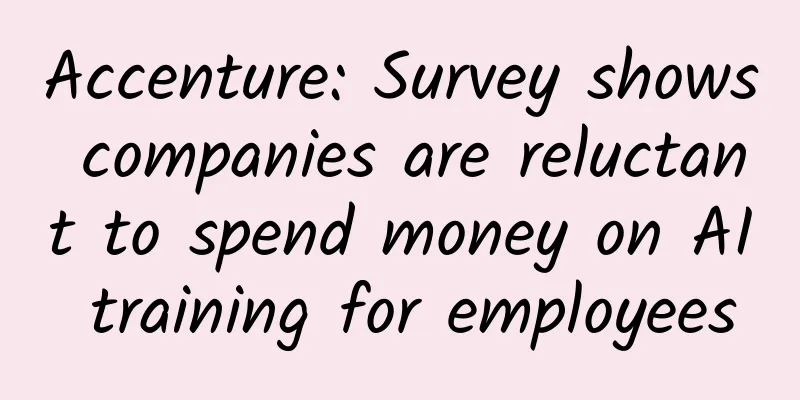Accenture: Survey shows companies are reluctant to spend money on AI training for employees

|
Most corporate executives expect artificial intelligence to significantly change the way their companies operate in the coming years. But despite the technology’s growing role, few companies have begun training their employees to adapt to the changes. The above conclusion comes from a survey of more than 1,200 CEOs and senior managers by international professional services giant Accenture PLC (ACN), which released the survey report at the World Economic Forum held in Davos, Switzerland last week. Almost all respondents, who come from a variety of industries and work for companies that currently use AI in at least some form in their daily operations, said they plan to use intelligent tools to enhance their employees’ work capabilities. 74% of respondents expect that various tasks at work will be automated to a large or very large extent through artificial intelligence in the next three years; as many as half of the respondents said that previous job descriptions have become obsolete as certain office jobs are automated. Still, only 3% of executives surveyed said they planned to significantly increase spending on training to help employees adapt to new AI-driven technologies, an investment Accenture researchers call “re-skilling.” This disconnect can cause many employees to panic, fearing that their jobs will be replaced by automation technology, and those who feel the most insecure are those doing routine or repetitive work. Most executives surveyed by Accenture expect their companies to see a net increase in jobs over the next three years driven by artificial intelligence, but just over half believe that humans and machines working together is a key component of their growth strategy, according to the survey. Accenture researchers warned that if companies are less willing to invest in employee training, their ability to adopt artificial intelligence on a large scale may be affected. From: wsj |
<<: Gigya: 2017 Consumer Attitudes towards Privacy and Security Report
>>: Why Internet companies are increasingly sponsoring popular variety shows
Recommend
Lin Yao | Reaching more possibilities through scientific research
At the beginning of 2023, the Chronic Disease Man...
More than 200 million animals are killed by cars in our country every year? This is how you can save them!
When it comes to human harm to wildlife, many peo...
An introduction to Kugou advertising promotion styles and material specifications!
Kugou is Tencent’s first social karaoke applicati...
Gartner: Government IoT revenue to approach $15 billion in 2020
According to Gartner, the global government Inter...
Canada has ordered Bitcoin ATMs and plans to roll them out in early October
[September 10 news] Bitcoiniacs, a Bitcoin exchan...
Some security issues in Android development: Activity
1. The activities used within this app must be se...
ViewController has many good transition animations
Source code introduction Cool transition animatio...
Samsung and LG shut down their production lines, marking the end of the era of Korean-made smartphones
On May 6, according to the Korea Times, industry ...
E-commerce private domain traffic diversion guide!
What exactly is private domain? The author of thi...
The first domestically produced special medicine for COVID-19 is approved: seizing the 10-day golden treatment period!
On December 8, my country's first novel coron...
Are parasites reliable as drug "couriers"? | Ficus microcarpa
Hello, I am Rong Ge from the China Science and Te...
Pinwan.com: New Energy Vehicle Data Inventory in 2022
The 2022 new power delivery volume list was unvei...
TikTok's popular speaker Sony SRS-XB31 vs. JBL Pulse3, which one is the real Rock&Roll!
In the past, people basically listened to music w...
The secrets of Douyin’s tens of millions of DOU+ placements
When operating a Tik Tok account, what you look f...
Beware! If you always bite your cheeks while eating, you may have cancer.
If I'm not mistaken, I believe you have had s...









